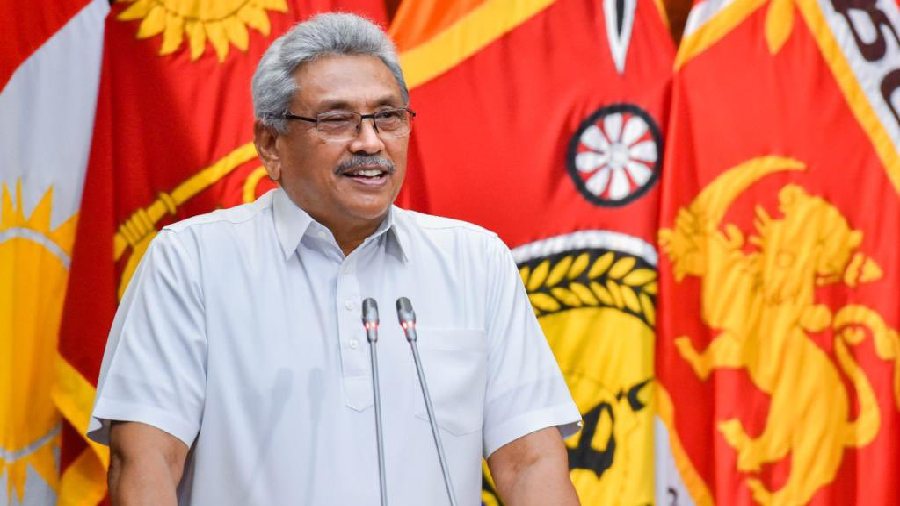Sri Lankan Prime Minister Mahinda Rajapaksa on Saturday dismissed calls by protesters to form an interim government to tackle the unprecedent economic crisis in the country, saying such political formations have no use "when people with varying policies can't see eye to eye".
Thousands of demonstrators have hit the streets since April 9, as the government ran out of money for vital imports; prices of essential commodities have skyrocketed and there are acute shortages in fuel, medicines and electricity supply.
Speaking to Radio station 'Neth FM', the prime minister said: "What use of interim governments when people with varying policies can't see eye to eye? There has to be accord which is not possible. If there is a need for an interim government it should happen only under my leadership."
Anti-government protesters in Sri Lanka are demanding the resignation of President Gotabaya Rajapaksa, Prime Minister Mahinda as they blame government policies for the forex crisis.
Commenting on the economic crisis, Rajapaksa, 77, said, "People need to show patience to face it (the economic crisis). They can keep on protesting if they don't want to have talks."
Last week, the ruling dispensation reached out to the Opposition parties and protesters for talks, but all efforts were rebuffed as the agitators said they want the government to resign.
The prime minister said he wasn't aware personally of anyone calling for his stepping down. "Even if there are demands for my resignation, it would not be from the majority, it will be from a minority group who wouldn't know the political history of the country," he said.
A group of over 40 Parliamentarians from the ruling coalition have declared independence, urging the formation of an interim government comprising all political parties.
Meanwhile, India has agreed to extend an additional USD 500 million credit line to help Sri Lanka import fuel.
India has already agreed to defer USD 1.5 billion in import payments that Sri Lanka needs to make to the Asian Clearing Union.
Sri Lanka needs at least USD 4 billion to tide over its mounting economic woes, and talks with international institutions such as the World Bank as well as countries like China and Japan for financial assistance have been going on.
Last week, the Sri Lankan government said it would temporarily default on USD 35.5 billion in foreign debt as the pandemic and the war in Ukraine made it impossible to make payments to overseas creditors.
 Monday, 23 December 2024
Monday, 23 December 2024










